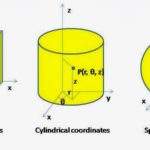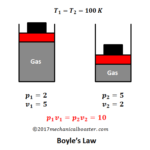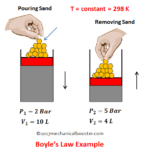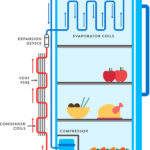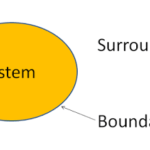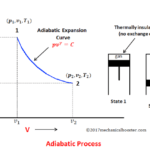The definitions or terms used in science are the language of
science. As we learn alphabets to speak or understand the English language in the same way we should need to learn those terms which are necessary to understand the scientific language. So some important
definitions or terms that we must know to understand the science of heat transfer are given below:
science. As we learn alphabets to speak or understand the English language in the same way we should need to learn those terms which are necessary to understand the scientific language. So some important
definitions or terms that we must know to understand the science of heat transfer are given below:
1. Steady:– Steady is generally used for properties.
Steady property means there is no change in that property with time at a specified
location.
Steady property means there is no change in that property with time at a specified
location.
For Example:– Steady temperature at a point p
means no change in the temperature at point p with time.
means no change in the temperature at point p with time.
2. Unsteady or transient:– Unsteady or transient is
opposite of steady. It means the property may changes at a specified point with
time.
opposite of steady. It means the property may changes at a specified point with
time.
3. Uniform:– It is also used for properties. Uniform property
means there in no change in that property with position at a specified time or
the property remain unchanged in the entire system.
means there in no change in that property with position at a specified time or
the property remain unchanged in the entire system.
4. Non-uniform:– It is opposite of uniform, it means that the property may change with position at a specified time.
For Example:– Non-uniform temperature means the temperature is not same at different points in the entire body at a specified time.
5. One dimensional flow:– It means heat may transfer
only in one direction. It is considered when the surface area is very large then the thickness.
only in one direction. It is considered when the surface area is very large then the thickness.
Example:- Heat transfer through long plane wall, in a pipe, steel pan used in kitchen etc.
6. Three dimensional flow:– It means heat may
transfer in all the three directions of the coordinate axis. It is consider when the surface area is not
enough large then thickness.
transfer in all the three directions of the coordinate axis. It is consider when the surface area is not
enough large then thickness.
7. Heat generation:– It is the phenomenon of
generation of heat in that medium through which heat transfer takes place. It occurs by the conversion of electrical, mechanical, chemical energy into heat. It
is a volumetric phenomenon.
generation of heat in that medium through which heat transfer takes place. It occurs by the conversion of electrical, mechanical, chemical energy into heat. It
is a volumetric phenomenon.
For Example:– Conversion of electrical energy
into heat in a wire through which electricity flows or in iron.
into heat in a wire through which electricity flows or in iron.





.bmp)
